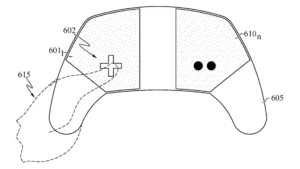Nokia Technologies has filed a legal challenge in the Delhi High Court after the Indian Patent Office (IPO) declined to grant its patent application related to 5G network slicing technology. The court’s decision could have far-reaching effects on how India treats software-based inventions in the telecom sector.
Understanding Network Slicing
Network slicing is an advanced feature of 5G infrastructure that creates isolated virtual networks within a single physical system. Each slice can be tailored to serve a specific purpose—such as telemedicine, online gaming, or smart factories. Nokia’s patent focused on improving device registration through third-party authentication, enhancing security and speed for network access.
Why the Patent Was Rejected
On January 8, 2025, the IPO rejected the application on several grounds:
The invention was considered obvious, referencing existing 3GPP standards.
It was viewed as a software-only innovation, making it ineligible under Section 3(k) of the Indian Patents Act.
The claims were poorly structured and lacked clarity, with improper dependencies and missed procedural updates.
Nokia’s Legal Argument
In its writ petition, Nokia defended its invention as novel and innovative. The company emphasized that the same patent has been approved in several major markets, including the United States, Japan, and South Korea. Nokia maintained that its technology supports mission-critical services, such as connected ambulances, real-time gaming, and autonomous transport.
High Court’s Action
The Delhi High Court has taken note of the petition and issued a notice to the IPO. The patent office has six weeks to respond. Nokia may file a rejoinder thereafter. The case is scheduled for the next hearing in November 2025.
Broader Implications
This case could set a major precedent for patent protection in India, particularly for software-integrated technologies. If the court rules in Nokia’s favor, it may lead to a more inclusive interpretation of what qualifies as patentable subject matter.
Tech firms such as Samsung, Ericsson, Qualcomm, and Huawei are closely observing the developments. The judgment may influence how global companies file for patents in India and invest in research and innovation.
Patent Law Challenges in India
India’s patent law, especially Section 3(k), restricts patents on software and algorithms unless they produce a technical effect or hardware improvement. Legal experts believe this case could clarify how future software-based telecom inventions are evaluated by the IPO.
Conclusion
Nokia’s legal challenge may prove to be a turning point in India’s approach to next-generation patent rights. With global attention focused on this case, the final verdict will impact not just Nokia but the broader telecom and digital innovation ecosystem.




